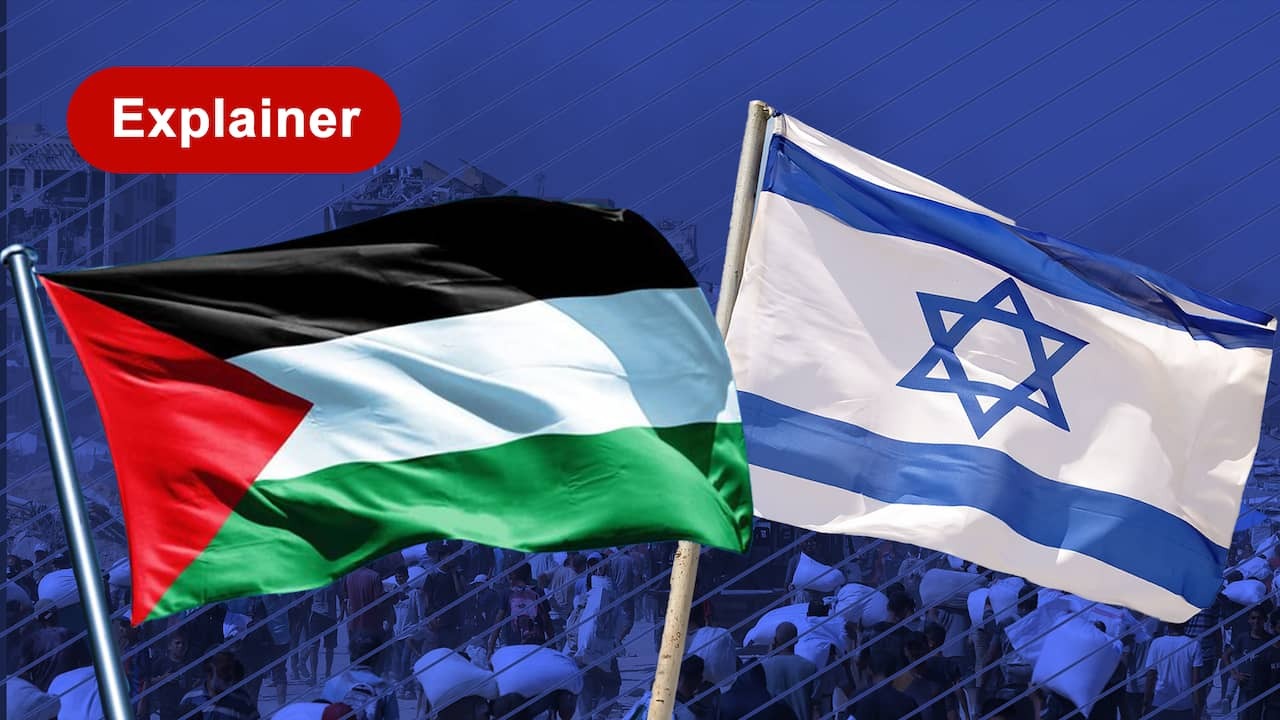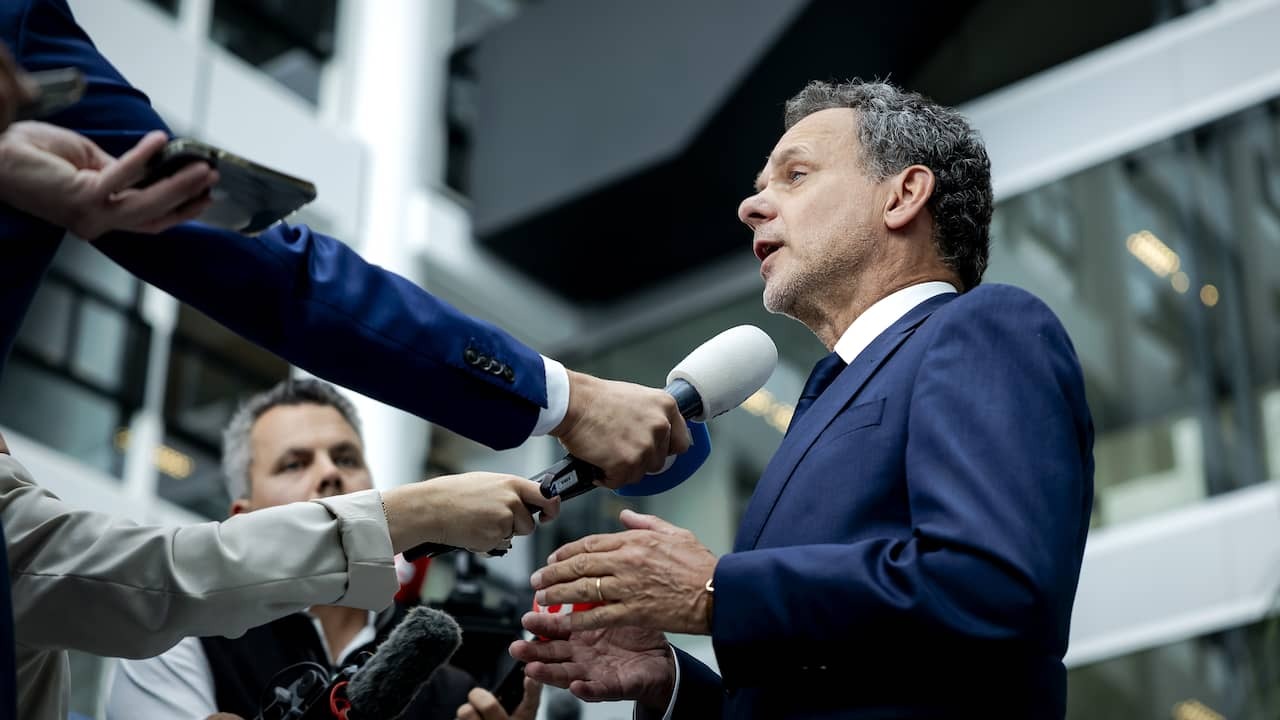
While an increasingly harsh course against Israel is being pursued from European capitals, the European Union is failing to make a fist. That lack of action is damaging the EU’s international reputation, experts warn NU.nl.
Since the mass cry for help from 111 international aid organizations and the ever-worsening situation in the Gaza Strip, there seems to be room for measures against the Israeli government in more and more European capitals. France, the United Kingdom and the Netherlands each announced measures against Israel last week.
But in one place it remained deafeningly silent. Threatening language is being used in Brussels, but this has not yet led to concrete sanctions. A plan by the European Commission to exclude Israel from the Horizon program failed on Tuesday due to a lack of support. Horizon is a subsidy scheme for research from which Israel receives hundreds of millions annually.
Freezing those funds would therefore hurt, says Peter Malcontent, who is an expert in the field of European-Israeli relations. In 2013, Brussels once threatened to suspend those subsidies, to the displeasure of Benjamin Netanyahu. But the Israeli Prime Minister gave in when important educational organizations began to stir.
Suspending the Horizon subsidies is just one of the many European possibilities for sanctions. The EU and Israel have an association agreement. That agreement includes a clause that obliges Israel to protect human rights. In the event of violations, the EU can suspend (parts of) that association agreement. European leaders could think of trade sanctions. That would also hurt Israel: Brussels is Israel’s largest trading partner and investor, says European expert Michel Michaloliákos.
EU is ‘paralyzed’ by its own member states
There is simply no support among member states for such measures, both experts see. The main obstructionists are now Germany and Italy, which are reluctant to tackle Israel, especially because of their role in the Second World War and the Holocaust. There is also resistance from countries such as Hungary and Slovakia, where right-wing populist governments sit that are ideologically similar to the government of Prime Minister Netanyahu.
“In the case of Russia (against which the EU did introduce several sanction packages, ed.) everyone can be persuaded to the idea that European security is at stake,” says Malcontent. “That is different in Gaza. How Israel is viewed is slightly different in every member state.”
Moreover, there are also member states with important strategic interests regarding Israel, says Michaloliákos. Countries such as Greece and Cyprus, for example, see Israel as an important ally in the strategic battle against Turkey and Arab influences in the region. Moreover, Israel has always been an important ally of the West in a region with many countries that reject Western values.
All those different interests weigh in on the policy of national governments, which are therefore reluctant for very different reasons. “And that is why the EU is currently paralyzed in its actions,” says Michaloliákos. “They simply do not have the authority to take steps as long as there is a blocking majority among member states.”
 1:42
1:42
Israel and Palestine: why a two-state solution is not working
Sentiment in the EU is shifting: ‘Dominoes are in motion’
Europe is not standing still, Malcontent and Michaloliákos emphasize. At the moment there are actually three groups of countries within the EU, says the latter. You have supporters of tougher action (such as Spain and Ireland), opponents of sanctions (Italy and Germany) and member states that are somewhat in between. Those countries were initially mainly critical of Hamas, but are now slowly but surely also expressing criticism of Israel.
The most important domino is Germany, Malcontent thinks. If this country gives in and supports sanctions, more member states may follow. He points out that the European Ministers of Foreign Affairs will meet at the end of August. “If the situation in Gaza continues to deteriorate, it is possible that a majority will emerge to suspend part of the association agreement,” he says. But it is not that far yet. “You see the dominoes moving, but they have not yet fallen in the direction of sanctions.”
Michaloliákos also sees things shifting, especially under increased international pressure. Germany and Italy are also countries that attach great importance to cooperation at European level, he emphasizes. “Now that sentiment is changing at that level, it may be that those countries will still comply with the sanctions,” he explains. “Although they will ensure that the sanctions are not too strict.”
The Netherlands has a striking role to play, Michaloliákos sees. Since the cabinet is demissionary and the PVV (which is outspokenly pro-Israel) is no longer participating, space has been created. Minister Caspar Veldkamp (Foreign Affairs) successfully urged earlier this year for an investigation into Israeli violations of the human rights clause in the EU treaty. And now the demissionary cabinet is also imposing sanctions itself.
 1:29
1:29
Veldkamp explains why Israeli ministers are not welcome in the Netherlands
Lack of decisiveness damages European reputation
In a sense, it is therefore logical that the EU is not yet as far as the national governments. Those same governments are now slowly but surely stirring, but there must be a majority of member states before the EU can act. Yet the lack of speed of action damages the reputation of the EU at international level, Malcontent and Michaloliákos believe.
“After the Cold War, the EU presented itself as a normative power,” says Malcontent. “We would do it all differently. Without violence and with diplomacy, we would convince the world of the goodness of human rights and liberal democracy.”
But that strategy always had one weak spot: Europe has always had trouble being critical of Israel. That “selective indignation” about the importance of human rights has always been a thorn in the side of many non-Western countries, Malcontent explains. Since October 7, that has only gotten worse.
“This is what European government leaders may be most concerned about,” he warns. “The damage that has already been done to the European image is enormous.”